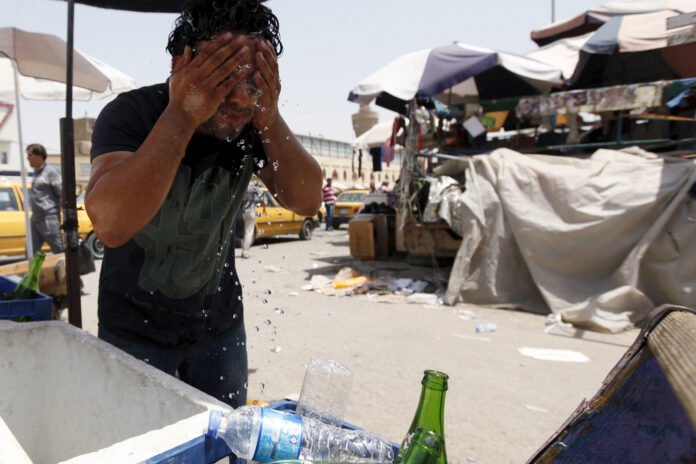Record-breaking temperatures have placed Iraq at the top of the global heat rankings this summer. On July 28, Basra International Airport recorded a scorching 51.8°C, making it the hottest location in the world that day.
The intense heat also affected many other Iraqi cities. In fact, 11 out of the 15 hottest places globally were in Iraq, according to recent data. This overwhelming presence on the list highlights the growing impact of climate change on the country.
Extreme weather is not new to Iraq, but the current situation shows alarming trends. Meteorologists linked the record-breaking temperatures to an exceptionally hot air mass. This mass was caused by low surface thermal pressure, which intensified the heatwave sweeping across the region.
Despite online rumors, Iraq’s national meteorological center confirmed that temperatures did not reach 65°C on July 27. However, experts still expect the extreme heat to continue through July 29. The same sources warn that future summers may bring even more dangerous conditions.
Meanwhile, the streets of Baghdad and other cities remain stifling. To help pedestrians cope, donors deployed fans that spray air mixed with water vapor. These cooling stations offer temporary relief, though the larger crisis remains unresolved.
Furthermore, environmental analysts say Iraq’s vulnerability is increasing. A shrinking plant cover and rising emissions are making heatwaves harder to manage each year. As a result, the government faces growing pressure to implement effective climate strategies.
Communities across Iraq are feeling the stress. Power grids strain under high demand. Families seek shelter from the sun. Outdoor work slows or halts entirely. These effects ripple across society and deepen existing economic challenges.
Nonetheless, record-breaking temperatures continue to draw international attention to Iraq’s climate crisis. The country must prioritize sustainability to cope with recurring extreme weather.
Through strategic adaptation, Iraq can prepare for future heatwaves. But for now, citizens are enduring one of the hottest summers on Earth.


